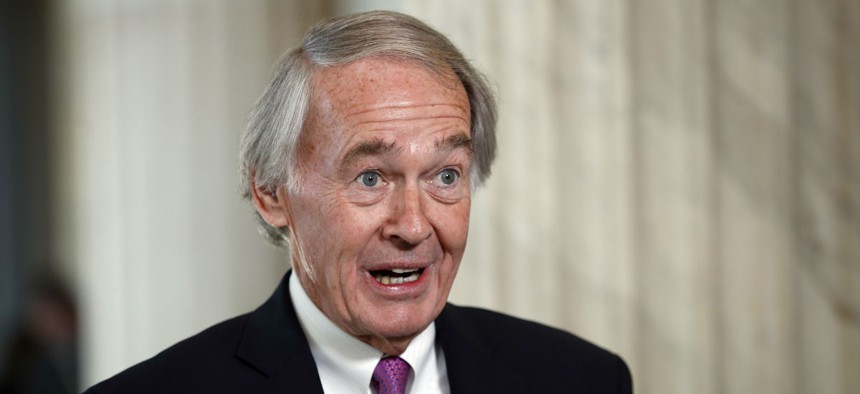Bipartisan Senate Group Demands Trump Team 'Immediately Cease' Shrinking of Federal Labor Relations Agency
FLRA is looking to close two of its seven regional offices.
A bipartisan group of more than a dozen senators is calling on the Trump administration to back off its plans to shutter two regional offices of the agency tasked with overseeing federal labor-management relations, saying the administration should “immediately cease” all planning related to the closures.
The Federal Labor Relations Authority announced plans to close its Dallas and Boston offices—two of the agency’s seven regional outposts—in its fiscal 2019 budget justification, sparking backlash from an array of federal labor groups and former employees. In the fiscal 2018 omnibus spending bill that President Trump signed into law in March, lawmakers included language prohibiting the Trump administration from eliminating or reducing funding “for a program, project, or activity as proposed in the president’s budget request” unless specifically authorized by Congress.
In the senators’ reading of that provision, the FLRA closures are “prohibited unless approved by Congress following detailed reprogramming reporting by the agency.”
“Congress demonstrated support for the current FLRA structure by appropriating level funding to the agency for fiscal year 2018,” the senators wrote, led by Ed Markey, D-Mass., and Susan Collins, R-Maine. “With a two-year budget agreement now in place, federal agencies should focus on delivering the most effective services for their constituencies rather than harmful cuts that will reduce responsiveness.”
Twenty labor groups sent a letter to members of Congress urging them to block the reductions, saying they would hinder the agency’s efforts to approve new collective bargaining units, resolve unfair labor practice disputes and reconcile negotiations between unions and management. The closures, the unions said, will exacerbate funding cuts to the agency’s “core mission” work. Moving FLRA staff farther from the unions who depend on them will inhibit those employees’ ability to “build relationships with parties,” the groups argued.
“Closing regional offices would place FLRA staff farther away from those who rely on their service,” the senators wrote. The agency has already cut funding for staff travel, the senators said, harming their ability to conduct work critical to “safeguarding the rights of federal employees.”
The closures amounted to a reorganization, the senators argued, meaning appropriators in Congress must first approve it. They called on FLRA to “immediately cease all planning and execution” of the consolidations.
Office of Management and Budget Director Mick Mulvaney recently told lawmakers on the House Appropriations Committee the closures were not a reorganization, though he conceded he had not previously heard about them or the FLRA in general.
“Not only am I not familiar with that, I’ve never heard of that,” Mulvaney said of the plan and FLRA generally. He later added: “I can’t imagine how closing two offices, and I have no idea how many offices they have, whether it’s two of two or two of 100, how that constitutes a reorganization. A reorganization is something more dramatic than that.”
Mulvaney told the House committee he would look into the issue and follow up a later date.
Sixteen employees would be affected by the closures, all of whom would be offered reassignments in other regions or at the Washington, D.C., headquarters. FLRA has also received authority to offer the employees early retirement, and plans to cut its workforce by 8 percent overall.
FLRA has not responded to repeated inquiries into the closures.




